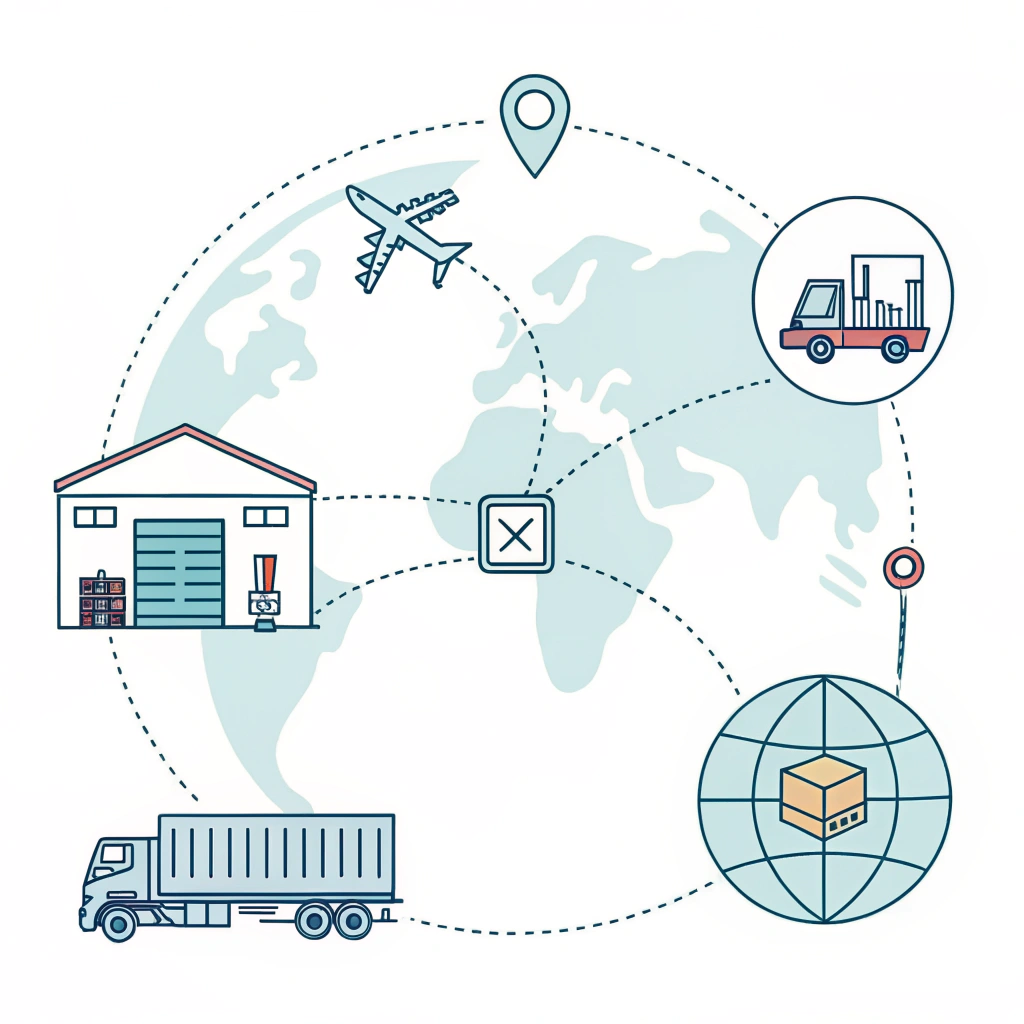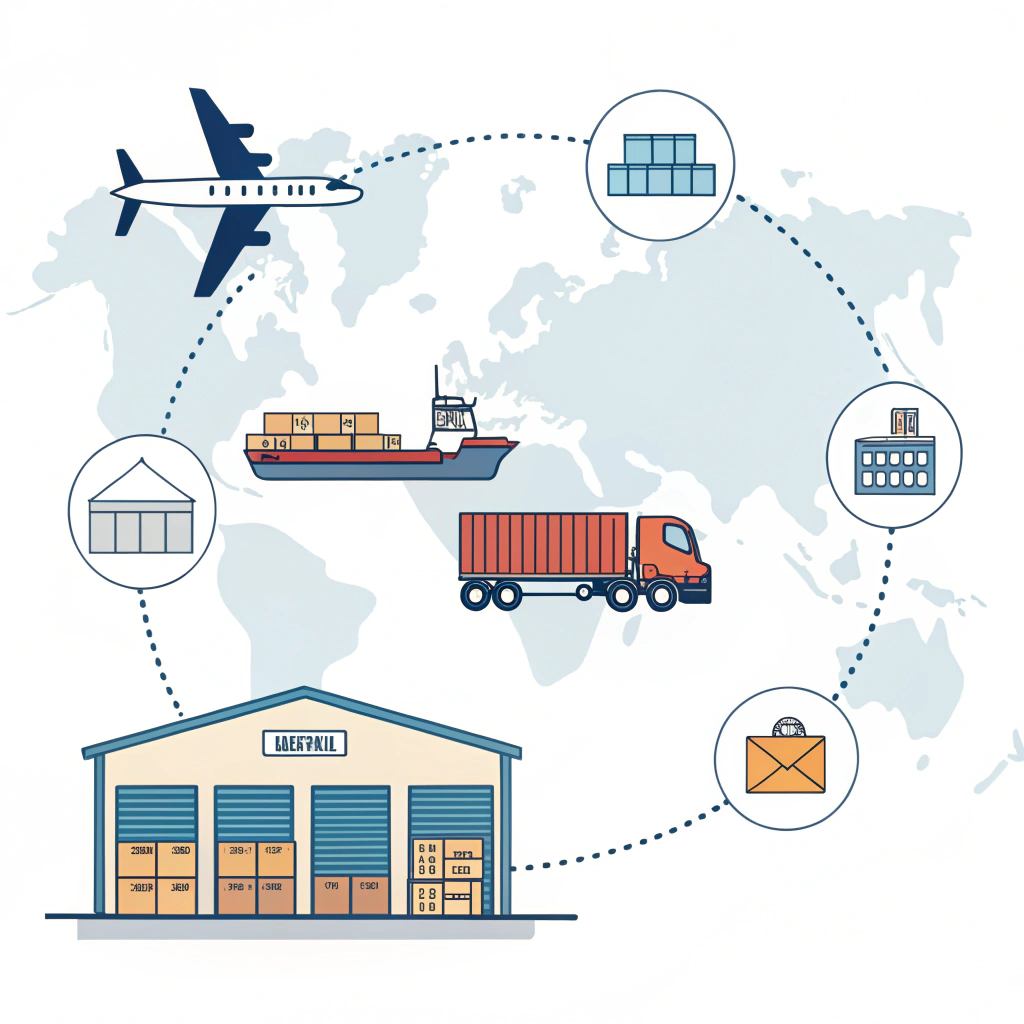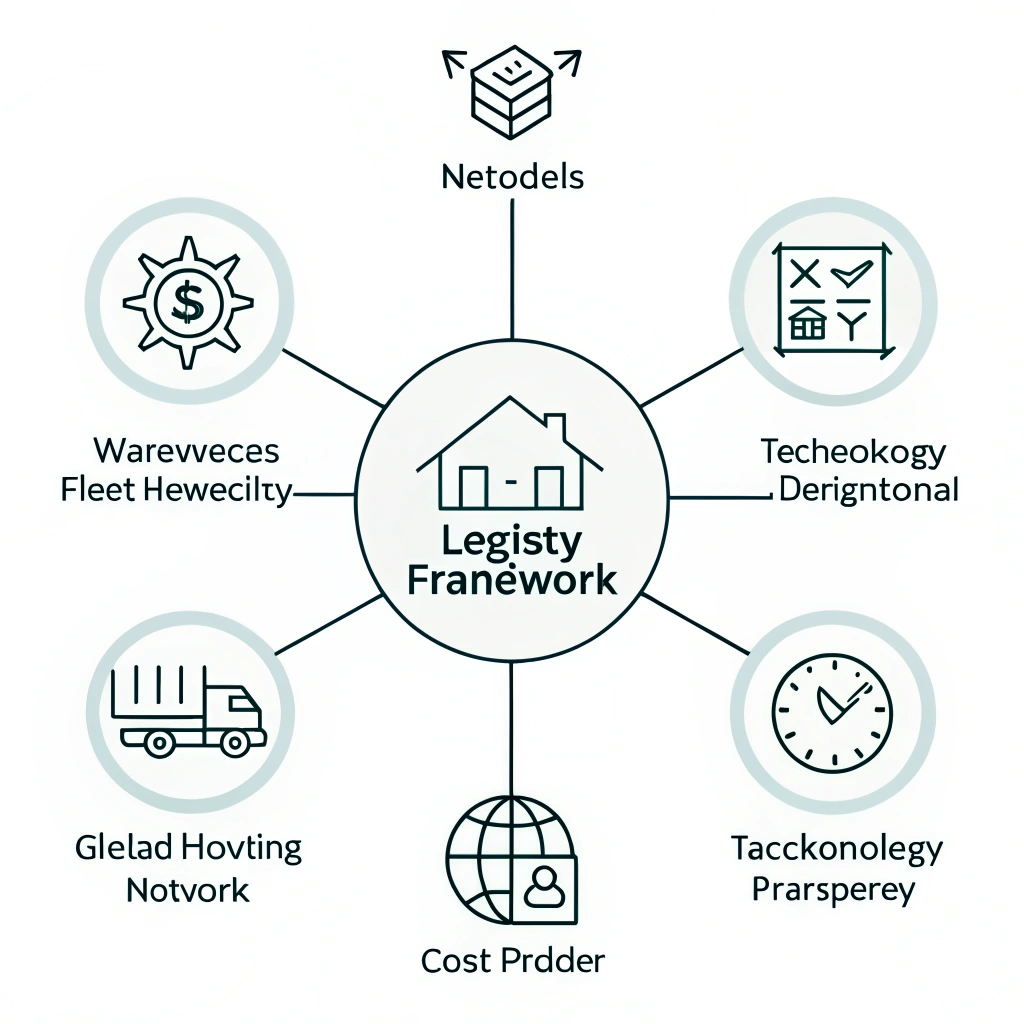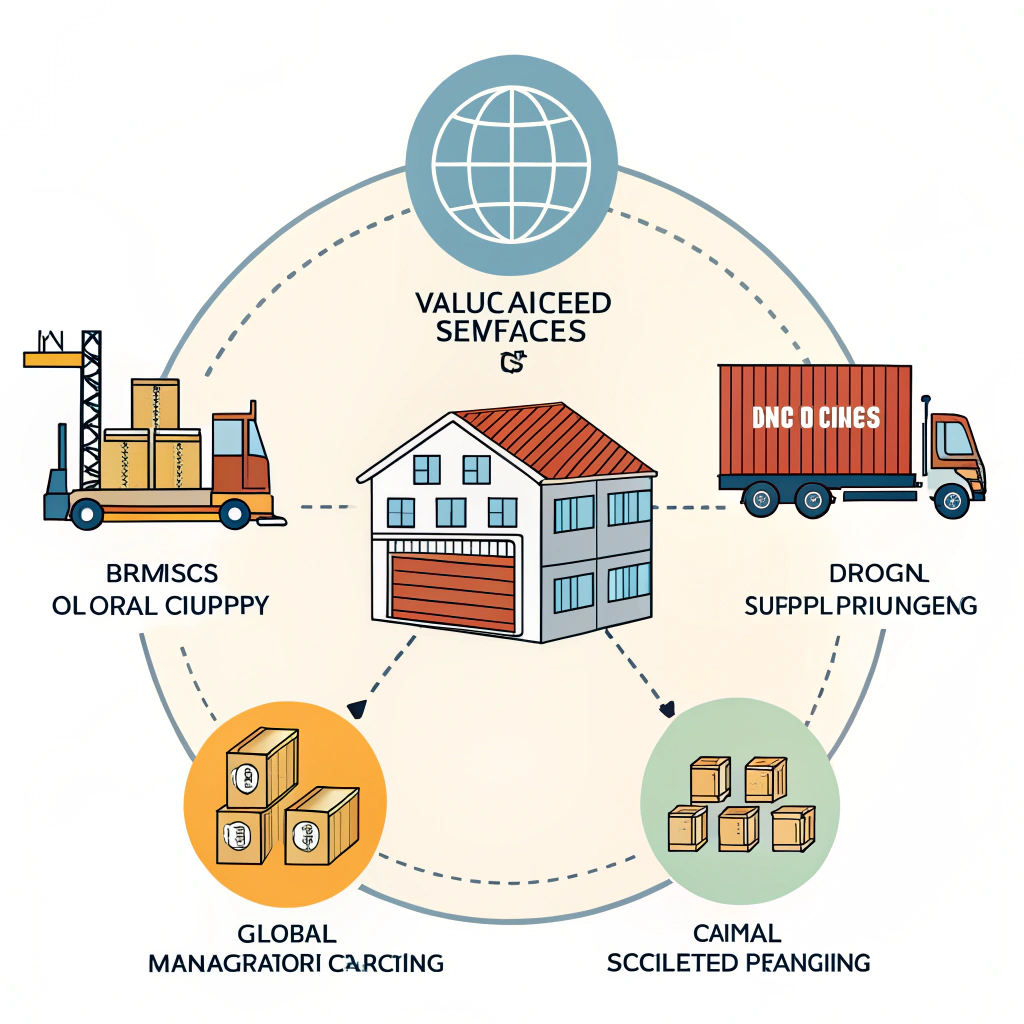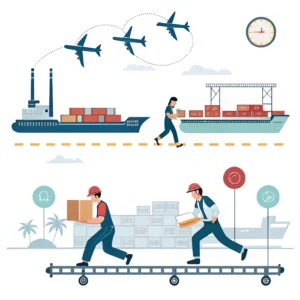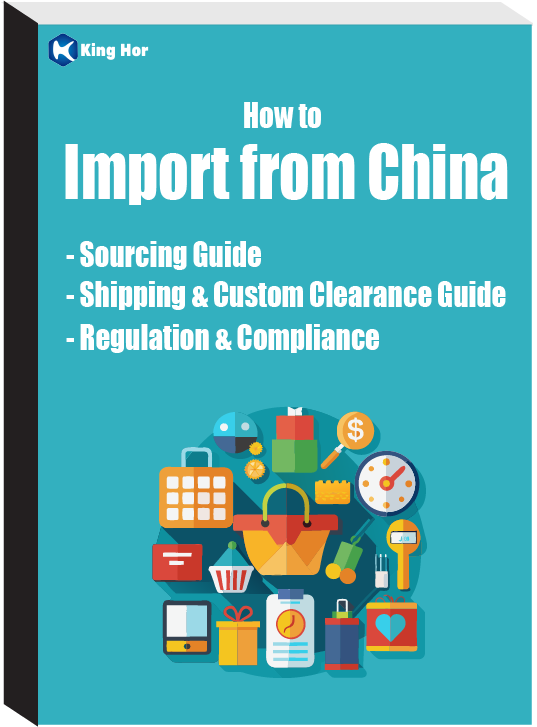Choosing a better international logistics service provider means evaluating a partner’s capabilities, infrastructure, and service quality to ensure smooth global shipping and supply chain management. In short, you need to focus on factors like fleet size, warehousing, technology integration, compliance, and overall cost-effectiveness to guarantee your goods are delivered on time and in optimal condition.
In today’s interconnected world, international logistics1 is far more than moving goods from one point to another. It involves complex processes such as freight forwarding2, customs brokerage3, warehousing, and last-mile delivery. As supply chain managers and procurement specialists consider long-term strategic partnerships, they must evaluate not just the price but also the performance metrics and compliance standards of potential service providers.
The ideal international logistics provider offers:
- Door-to-door services for various shipping modes (air, ocean, land).
- Seamless integrated supply chain management4.
- Consolidation services to optimize cargo loads.
- Robust technology systems that provide real-time tracking and data analysis.
When comparing potential partners, it is essential to use a structured decision framework. Below are the primary criteria you should consider:
- Fleet Size and Type: A provider with a diverse fleet (air, sea, land) ensures flexibility and reliability. Assess their ability to handle various cargo sizes, from less-than-container loads (LCL) to full container shipments.
- Warehousing and Consolidation: Adequate storage facilities and consolidation capabilities reduce delays and ensure goods are well managed.
- Technology Integration: Look for advanced tracking systems and IT platforms that provide real-time data, ensuring visibility throughout the shipping process.
- International Reach: Does the provider have an established network in key regions? Strong global connections indicate reliable performance in handling cross-border shipments.
- Regulatory Compliance: Ensure the service provider complies with international shipping regulations, customs requirements, and safety standards to avoid delays and penalties.
- Air and Ocean Freight Solutions: A robust service portfolio means the provider can offer fast and reliable air freight as well as cost-effective ocean shipping. Evaluate their methods for handling different kinds of cargo.
- Inland Trucking and Last-Mile Delivery: Effective inland transportation complements the global shipping process. Providers with specialized trucking services enhance the overall logistics performance.
- Customs Brokerage: Efficient customs clearance reduces delays and helps prevent costly disruptions during international transit.
- Competitive Pricing: Not every provider offers the same pricing structures. Evaluate cost models, and beware of hidden fees. A transparent pricing policy is a strong indicator of reliability.
- Performance Metrics: Service level agreements (SLAs) and reliable performance data (such as on-time delivery percentages, damage rates, and consolidation efficiency) are critical to making an informed decision.
- Dedicated Account Management: A strong logistics provider offers personalized service with dedicated account managers who understand your business and can provide tailored solutions.
- After-Sales Support and Issue Resolution: Evaluate how promptly and effectively issues are resolved. An effective customer service team can significantly impact your supply chain continuity.
When setting up a decision framework, it helps to visualize the key criteria. The following table summarizes the essential factors you should compare among providers:
| Criteria | Explanation | Key Metrics / Indicators | Considerations |
|---|---|---|---|
| Capabilities & Infrastructure | Fleet diversity, warehouse capacity, IT systems | Number of vehicles, warehouse size, tech level | Provider’s ability to scale operations |
| Global Network and Compliance | International presence and regulatory adherence | Number of international hubs, compliance record | Local expertise and partnerships |
| Service Portfolio | Breadth of services offered (air, ocean, trucking, customs brokerage) | Service coverage, value-added services | Alignment with your specific logistics needs |
| Cost-Effectiveness | Pricing structure transparency and overall cost savings | Competitive quotes, hidden fees | Total cost of ownership over service lifecycle |
| Customer Service | Responsiveness and after-sales support | SLA performance, customer satisfaction ratings | Quality of communication and issue resolution |
Beyond the basics, assessing a potential provider’s operational excellence can reveal the true value they bring to your supply chain. Consider these additional areas:
A modern logistics provider uses integrated technology platforms that facilitate real-time tracking, automated notifications, and data analytics. These systems enhance transparency and allow you to proactively manage any potential delays or issues. Robust technology systems also improve planning and optimization across your logistics chain.
International shipping demands can vary seasonally or due to unexpected global events. A provider with flexible service options—such as varying shipment sizes, expedited delivery modes, or alternative routing—can help maintain smooth operations. Scalability is especially important for businesses experiencing rapid growth or market fluctuations.
Unforeseen events, from natural disasters to regulatory changes, can disrupt supply chains. When choosing a provider, inquire about their risk management framework and contingency planning. A strong logistics partner will have robust measures to minimize the impact of disruptions, ensuring that your shipments remain on track.
With increasing global emphasis on sustainability, evaluate whether the provider adheres to eco-friendly practices. This can include fuel-efficient transportation modes, green warehousing operations, and efforts to minimize waste. Sustainable logistics practices not only reduce environmental impact but can also enhance your corporate social responsibility profile.
A comprehensive international logistics provider should extend beyond basic freight handling to offer value-added services that streamline your entire supply chain. These may include:
Efficient customs clearance is essential to avoid delays at borders. A provider with a dedicated customs brokerage team can manage paperwork, navigate regulatory requirements, and expedite clearance procedures. This ensures that goods move through international borders smoothly.
Risk and spend management, domestic distribution, and a suite of purchasing management services are critical for large-scale operations. Providers offering global supply chain management can align logistics with your broader business goals, delivering both cost savings and operational efficiencies.
Having access to strategically located warehouses can reduce transit times and improve customer satisfaction. Evaluate the provider's storage capabilities and whether they offer services like pallet repacking, merging shipments, and transloading. Such services consolidate shipments, reducing overall transportation costs.
For businesses with specific needs—such as fragile items or high-value electronics—the provider’s ability to offer specialized handling and customized packaging is vital. Ensure that the logistics provider has the requisite expertise to manage your unique shipping requirements.
When assessing potential international logistics service providers, use the following step-by-step guide to finalize your decision:
- Identify Your Specific Needs: Consider your shipment types, frequency, and volume. Map these requirements against the services offered by potential providers.
- Request Detailed Proposals: Ask providers for case studies, client testimonials, and detailed proposals highlighting their capabilities. Compare these proposals using the criteria mentioned above.
- Evaluate Technology Integration and Transparency: Ensure that the provider’s IT systems align with your supply chain needs by offering comprehensive real-time tracking and transparent pricing.
- Assess Flexibility and Scalability: Verify that the provider can scale operations in line with your growth and adapt to unexpected market changes.
- Conduct a Pilot Run: If possible, conduct a small-scale test shipment to evaluate the provider’s performance. Use tangible performance metrics such as on-time delivery, customer service response time, and overall cost-effectiveness to guide your decision.
- Review Long-term Partnership Potential: Consider whether the provider offers additional value through integrated services like customs brokerage and warehousing. A long-term partnership will ensure continual improvement and alignment with your evolving business needs.
Choosing the right international logistics service provider requires in-depth evaluation of multiple factors, from operational capabilities and technological integration to cost transparency and customer support. By leveraging a structured decision framework, you can confidently select a partner that supports your global supply chain strategy5 and drives efficiency.
Action Steps:
- Make a checklist based on the criteria discussed.
- Schedule consultations with shortlisted providers.
- Request detailed performance data and case studies.
- Evaluate pilot runs and compare against your logistical requirements.
- Finally, choose a partner that not only meets your current needs but can also scale with your future growth.
By following these steps, you can ensure a robust, efficient, and cost-effective international logistics strategy that supports your business objectives on a global scale.
Q: How do I choose a logistics company?
A: To choose a logistics company, assess its capabilities and infrastructure. This includes verifying the provider’s fleet size, warehousing facilities, technology systems for real-time tracking, and their ability to manage your specific shipping requirements.
Q: What are the 5 P's of logistics?
A: The 5 P's of logistics are product, price, place, promotion, and people. These elements guide a comprehensive logistics strategy to meet customer demands while optimizing the overall supply chain performance.
Q: What are the 7 rules of logistics?
A: The 7 rules (or 7Rs) of logistics include having the right product, right customer, right price, right quantity, right condition, right time, and right place. These guidelines help ensure efficiency and effectiveness in the logistics process.
-
international logistics: Read this article to understand the complexities of managing global transportation networks, including planning, tracking, and compliance across borders. ↩ ↩
-
freight forwarding: Learn more about the process of coordinating shipments and managing documentation, ensuring your goods move efficiently from origin to destination. ↩ ↩
-
customs brokerage: Explore how professional customs brokerage services facilitate efficient border crossings by managing documentation and compliance requirements. ↩ ↩
-
integrated supply chain management: Discover strategies for linking various supply chain activities to optimize performance and achieve seamless operational flow. ↩ ↩
-
global supply chain strategy: Delve into comprehensive approaches for aligning logistics with business goals, ensuring cost savings and competitive advantage in worldwide operations. ↩ ↩

